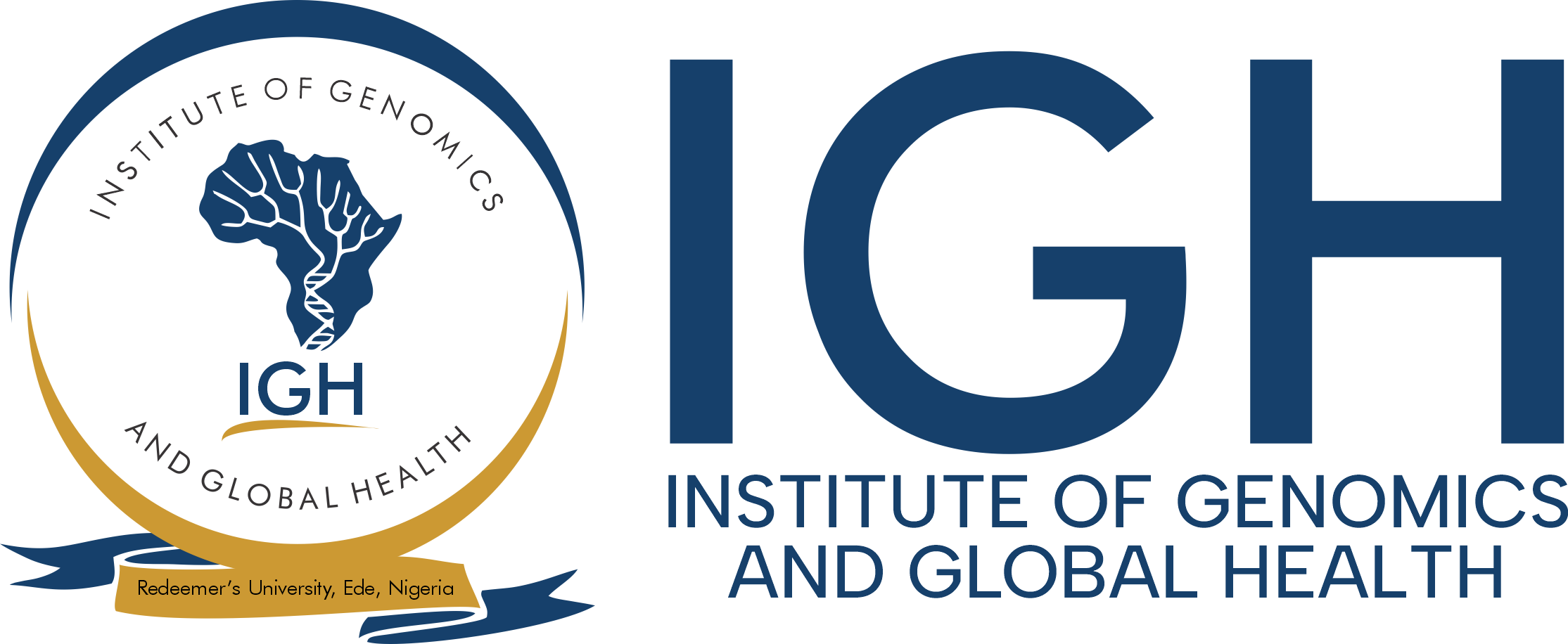A summary of the Human Genomics Centre
The Human Genome Project is a project that was launched in 2024 at the Institute of Genomics and Global Health (IGH), formerly ACEGID, is a groundbreaking project aiming to lead human genomics sequencing in Africa.
The key focus areas of the work
The primary goal of the Human Genomics Center is to become a leading hub for advancing African genetic knowledge. The center’s first initiative is the Human Genome Projec, an initiative to sequence 3 million African genomes. The project will focus both on communicable and non-communicable diseases, including cancer, diabetes, and other lifestyle diseases.
Additionally, our human genomic research will be a key element of GenCoE. GenCoE is an emerging initiative, (Genomics Centres of Excellence in Africa) that has already secured a 500k USD seed investment from the Skoll Foundation. The goal is to establish a network cutting-edge genomics research programs and translating research findings for better health on the continent. Africa GenCoE will leverage the extensive genetic and environmental diversity across Africa to drive the generation of new knowledge to improve the precision and accuracy of healthcare for its people and the rest of the world.
Current projects or achievements
Among its notable achievements, the center made history in November 2024 by successfully sequencing a whole human genome entirely on Nigerian soil for the first time. Illumina has donated the Illumina NovaSeq X Plus sequencer, making it one of the few institutions on the continent capable of performing advanced human genome analysis.
Why this research matters / its real-world impact
The Human Genome Project spearheaded by the Institute of Genomics and Global Health (IGH), formerly ACEGID, is a pivotal initiative aimed at addressing the significant underrepresentation of African populations in global genomic research. Despite Africa’s unparalleled genetic diversity, individuals of African descent constitute only about 1.1% of participants in genome-wide association studies, highlighting a substantial gap in the data used to inform medical research and healthcare solutions worldwide.
Sequencing whole human genomes in Nigeria is a first step toward opening new vistas of healthcare opportunities, precision medicine for Africans.
Africa is recognized as the cradle of modern humans and harbors the highest levels of genetic variation among all continents. This diversity offers invaluable insights into human evolution, disease susceptibility, and the development of effective treatments. By sequencing African genomes, researchers can uncover novel genetic variants that influence health and disease, leading to more accurate diagnostics, personalized therapies, and a better understanding of conditions that disproportionately affect African populations.
IGH’s Human Genome Project is spearheading the work to span this gap. Sequencing African genomes not only enriches the global genomic dataset but also empowers African scientists and institutions to lead research that directly benefits their communities. This initiative is a significant step toward equitable healthcare, ensuring that the genetic insights derived from African populations contribute to medical advancements and the reduction of health disparities both on the continent and globally.
Any notable partnerships or collaborators
- Redeemer’s University, Nigeria: Host institution providing foundational support and infrastructure for IGH’s operations.
- Skoll Foundation: Provided 500k USD in seed funding for the GenCoE Project
- Illumina: Donated NovaSeqX Plus to IGH for human sequencing purposes and pledged support with reagents
- Roche: Pledged financial support for reagents and sequencing
Future goals or vision
As we look ahead, IGH is focused on fully launching the Human Genome project into full scale. Key upcoming projects for the human genome project include:
- Gathering sample provider partners: Finding sample providers who can provide sample cohorts for sequencing efforts
- Continued African genome sequencing: IGH has the ambitious goal of sequencing 3 million African genomes
Biobank Expansion: Growth and enhancement of our existing Biobank to support a broader range of human genome sequencing efforts

